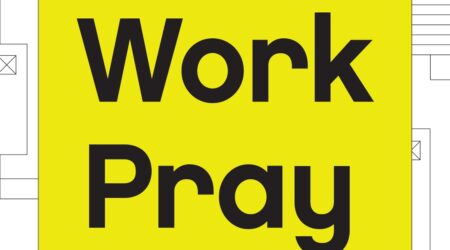Recorded on October 10, 2022, this “Authors Meet Critics” panel focused on the book Voices in the Code: A Story About People, Their Values, and the Algorithm They Made, by David Robinson, a visiting scholar at Social Science Matrix and a member of the faculty at Apple University. Robinson was joined in conversation by Iason Gabriel, a Staff Research Scientist at DeepMind, and Deirdre Mulligan, Professor in the UC Berkeley School of Information.
The panel was co-sponsored by the Berkeley Center for Law & Technology, the Center for Long-Term Cybersecurity, and the Algorithmic Fairness and Opacity Group (AFOG).
About the Book
Algorithms – rules written into software – shape key moments in our lives: from who gets hired or admitted to a top public school, to who should go to jail or receive scarce public benefits. Today, high stakes software is rarely open to scrutiny, but its code navigates moral questions: Which of a person’s traits are fair to consider as part of a job application? Who deserves priority in accessing scarce public resources, whether those are school seats, housing, or medicine? When someone first appears in a courtroom, how should their freedom be weighed against the risks they might pose to others?
Policymakers and the public often find algorithms to be complex, opaque and intimidating—and it can be tempting to pretend that hard moral questions have simple technological answers. But that approach leaves technical experts holding the moral microphone, and it stops people who lack technical expertise from making their voices heard. Today, policymakers and scholars are seeking better ways to share the moral decisionmaking within high stakes software — exploring ideas like public participation, transparency, forecasting, and algorithmic audits. But there are few real examples of those techniques in use.
In Voices in the Code, scholar David G. Robinson tells the story of how one community built a life-and-death algorithm in a relatively inclusive, accountable way. Between 2004 and 2014, a diverse group of patients, surgeons, clinicians, data scientists, public officials and advocates collaborated and compromised to build a new transplant matching algorithm – a system to offer donated kidneys to particular patients from the U.S. national waiting list.
Drawing on interviews with key stakeholders, unpublished archives, and a wide scholarly literature, Robinson shows how this new Kidney Allocation System emerged and evolved over time, as participants gradually built a shared understanding both of what was possible, and of what would be fair. Robinson finds much to criticize, but also much to admire, in this story. It ultimately illustrates both the promise and the limits of participation, transparency, forecasting and auditing of high stakes software. The book’s final chapter draws out lessons for the broader struggle to build technology in a democratic and accountable way.


